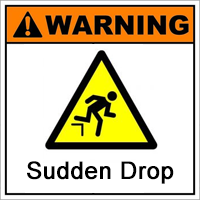As part-owner of this fledging website, SEO (Search Engine Optimisation) is something that interests me out of necessity. I mean if you create a website, you probably want it to be visited and if you want it to be visited, you need it to appear high in the search engine rankings.
Geek always told me SEO was basically snake oil purveyed largely by people with poor morals and that in any case, it’s a moving target. Search engines constantly change the algorithms they use to rank websites. Taking all this into account I made it my mission to gain a better understanding and then try to use that in the real world, with good old Geek and Dummy, to see if I could improve our ranking.
I’m going to keep this basic because after all, I am just a dummy but hopefully some simple bullet point tips might prevent you losing all hope or from straying into ‘black hat’ SEO territory.
The first thing to be clear about: if you’re relying on search rankings for traffic, then Google is your friend. I say your friend, but unlike a real friend, Google will be extremely intolerant of your transgressions. It won’t understand your foibles and will penalise you mercilessly if you offend its sensitive and ever-changing algorithms. Yeah Google is nothing like your friend, Google’s like your wife!! 😉
You may have heard people allude to the algorithms used by Google. At a basic level they analyse your website in detail and rank it based on a number of mysterious factors. These factors change quite frequently – sometimes drastically. You may also have heard of Panda and Penguin as the names given to recent iterations of Google’s ranking engines.
You can spend forever reading about various aspects of SEO that people claim will affect your search rankings. The truth is however, Google don’t want you to know because to make that public is to give away the tools that more unscrupulous web masters want to use to manipulate the system.
 If you find your page ranking plummet overnight, unless you’ve made some changes to your site around the time this happens, usually it’s down to a change made by Google – no anything you’ve done wrong. This site has suffered from that on occasion. After much soul-searching and analysis of what we could possibly have done to upset ‘the wife’, within a few days it went right back to normal. This left us to surmise it was a tweak to Penguin that temporarily affected us.
If you find your page ranking plummet overnight, unless you’ve made some changes to your site around the time this happens, usually it’s down to a change made by Google – no anything you’ve done wrong. This site has suffered from that on occasion. After much soul-searching and analysis of what we could possibly have done to upset ‘the wife’, within a few days it went right back to normal. This left us to surmise it was a tweak to Penguin that temporarily affected us.
So that’s a very simple background introduction to SEO. Here are my tips for improving your rankings in Google searches and more importantly, how not to losing that all important front page position.
- Number one piece of advice for improving SEO: create a site with integrity. The days of creating a sham site to host links and adverts are gone for all but the most skilled of dark web masters. Google really is in control. Uf you want to get in there then you have to play by the Big Boy’s rules. You can have limited success trying to buck the system but eventually they will find you and punish you.

- As I’ve described, Google can be a fickle creature. Log all your website changes. If your rankings drop suddenly and don’t recover, check for a correlation between changes and the drop.
- A day in the life of your website is not enough to gauge a problem. If your rankings drop for a day or even a week that can be normal. If that stretches beyond a week then you have work to do. Go to it Sherlock!
- If your rankings have plummeted and not recovered, make sure you haven’t been hacked. I’ve read of sites being hacked by adding links in a hidden div and those links have offended Google!!!!!!
- Is your content original and relevant? Don’t underestimate the intelligence of Google. Are you plagiarising someone else’s work? Does your content actually make sense and contain relevant language for the subject? If you’re dropping keywords into sentences but they doesn’t fit the subject, Google’s algorithms can detect it and penalise this. No really, it’s that good!
- Use links that are relevant to your content and that are ‘blue chip’ sites. If your posting links into content that take a viewer somewhere undesirable, that site’s offences can be associated to you. Google wants good links and access. You can add depth to your own posts by sharing and linking to other sites, but do so wisely.
The big question I guess is, followed this advice ourselves, what results have we seen?
We started off with very few links in our content but have started to increase these, taking care to keep them relevant and mainstream. As you can see, our content is unique and nothing is plagiarised. We have also gone big on security and our site is clean.
What we have seen as a result in a very short time, is modest viewing figures but figures that have doubled week on week. We have hit page 1 rankings on most of our keyword search targets and this seems to be nice and stable.
The last update to Penguin resulted in the decimation of our viewing figures and not following my own advice, I despaired for days. Our update log revealed no changes. A check of our content, security and links showed nothing nasty. After 4 days we were back to where we started – actually our viewing figures have improved significantly within a week. Panic over, but just goes to show that you need to be aware of the Google update path and avoid jumping to conclusions (something I am very good at).
So there you go, a low-level Dummy guide to SEO but a decent start to give you a back story in the murky world of Search Engine Optimisation.




Hi, thanks for the tips – as you say, don’t underestimate the intelligence of Google!